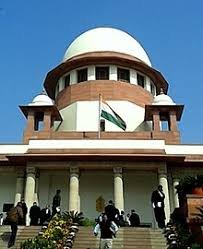M/s Oswal Petrochemicals Ltd. (the appellant), a manufacturer of excisable goods, had initially classified Benzene and Toluene under Chapter 29 of the Central Excise Tariff Act, 1985, an approval granted by the Assistant Collector in 1990 [7, 8, 8.2, 24]. Subsequently, in October 1990, the department drew samples of these products for chemical testing. The analysis, reported in January 1991, indicated that the purity of the two products was less than 96 percent, leading the department to propose their re-classification under Chapter 27, which attracted a higher duty. This resulted in show-cause notices for differential excise duty from September 1990 to December 1992 and January to February 1993. The Customs, Excise and Service Tax Appellate Tribunal (CESTAT) largely upheld the differential duty demand, dismissing the appellant’s appeals and partly allowing the department’s appeal6. The appellant then filed appeals before the Supreme Court.
Law Involved: The case primarily involved the Central Excise Act, 1944, particularly Section 35L(b) under which the appeals were filed. Key provisions of the Central Excise Tariff Act, 1985 (Chapters 27 and 29) pertaining to the classification of excisable goods were central to the dispute. The Central Excise Rules, 1944, especially Rule 56, which governs the taking of samples and the communication of test results to manufacturers, and Rule 9B, concerning provisional assessments to duty, were also critically examined. Furthermore, the fundamental Principles of Natural Justice were invoked regarding the communication of test reports.
Reasoning: The Supreme Court found that the department had committed significant procedural errors. Crucially, it noted that the chemical test reports, which formed the very basis for the re-classification and the demand for higher duty, were never fully furnished to the appellant; only a “gist” was provided. The Court explicitly stated that this was a clear violation of Rule 56(2) and (4) of the Central Excise Rules, which mandates communication of test results and providing a copy of the test report to the manufacturer. The Court rejected CESTAT’s view that a “gist” constituted “substantial compliance,” deeming it incorrect and a breach of natural justice. This failure deprived the appellant of their right to effectively challenge the reports or seek a re-test. Additionally, samples were not drawn for all periods covered by the show-cause notices.
The Court further observed that the “provisional assessments” for certain periods, including January and February 1993, were not properly provisional. It highlighted that the mandatory conditions under Rule 9B of the Central Excise Rules, such as the requirement for a bond or a proper order in writing from the officer, were not complied with by the department. Therefore, the re-classification of products and the consequential differential duty demand, which relied on these flawed tests and irregular assessments, could not be sustained in law.
Holding: The Supreme Court allowed the appeals filed by M/s Oswal Petrochemicals Ltd. and set aside the impugned common order of CESTAT dated 21.05.20102526. The Court unequivocally ruled that the differential duty demand, based on the re-classification of Benzene and Toluene from Chapter 29 to Chapter 27, was unsustainable due to the department’s failure to adhere to procedural requirements regarding the communication of test reports and the proper conduct of provisional assessments. The assessments for the months of January and February 1993 were specifically declared not provisional, and the demand raised for that period was found to be barred by limitation. Correspondingly, the appeal filed by the department was set aside.
M/S Oswal Petrochemicals Ltd. V. Commissioner Of Central Excise, Mumbai – II
Supreme Court: 2025 INSC 578: (DoJ 28-04-2025)






